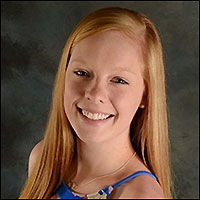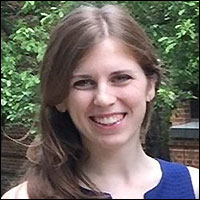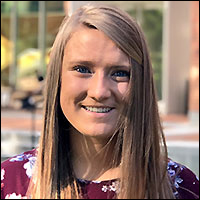Three engineering graduate students whose research focus is biomechanics and assistive technologies will attend the world’s largest sports medicine conference thanks to spring 2020 travel grants from the Vanderbilt Graduate School’s Russell G. Hamilton Graduate Leadership Institute.

Maura Eveld, Emily Matijevich and Rachel Teater are mechanical engineering students who work with Karl Zelik, assistant professor of mechanical engineering and biomedical engineering, in his Biomechanics and Assistive Technology laboratory. The BAT lab is part of Vanderbilt’s Center for Rehabilitation Engineering and Assistive Technology.
“I am delighted with the enthusiastic response to the new GLI grant program. It shows that our students are actively seeking out opportunities to broaden their academic and professional perspectives,” said Mark Wallace, dean of the Graduate School. “To provide our graduate students with funding to pursue activities that they may not have been able to explore otherwise is a driving factor behind the development of this program.”

The trio will use their travel grants to attend the American College of Sports Medicine’s annual meeting in San Francisco May 26-30. The ACSM meeting, with the World Congress on Exercise is Medicine and the World Congress on the Basic Science of Exercise in Regenerative Medicine, will bring together about 6,000 professionals from around the world to explore the latest research in sports medicine and exercise science.
“Emily, Maura and Rachel are rising stars in biomechanical engineering and terrific examples of students making the most of their graduate school experience,” Zelik said. “These travel grants will enable them to complement their academic and research studies by connecting with sports medicine professionals and networking with industry.”

Eveld, from Kansas City, Missouri, is a third-year graduate student studying the biomechanics of stumble recovery with an aim to mitigate the incidence of falls for individuals with higher fall risk, particularly lower-limb prosthesis users.
Matijevich, from Chicago, Illinois, is a fourth-year graduate student whose research interests include running biomechanics, overuse injury prevention and wearable technologies. She is currently developing a wearable technology to measure the forces bones undergo during running and conditioning exercises.
Teater, from Columbus, Ohio, is a second-year graduate student who focuses on developing and evaluating the ability of novel prosthetic devices to improve the daily life of lower-limb prosthetic device users.
“This conference should give us a great chance to see current sports medicine research from a more clinical perspective and allow us to meet and network with leading physicians and researchers in this field,” said Teater.
All three plan to visit collaborators in biomechanics labs at Stanford and University of California, Berkeley.
“I hope to network with numerous biomechanics and wearable technology companies, startups and nonprofits like FitBit, Apple Watch, Google and Women in Sports Tech,” said Matijevich.
The Hamilton GLI has supported more than 100 Vanderbilt graduate students in their research and professional development endeavors since the travel and dissertation grants were established in spring 2019. The travel grant supports students pursuing professional or academic development opportunities not covered by the Graduate School’s current Travel Grant to Present Research program.
Contact: Brenda Ellis, 615 343-6314
brenda.ellis@vanderbilt.edu